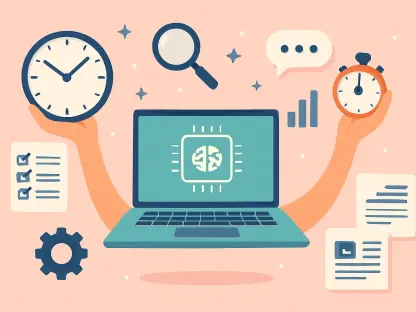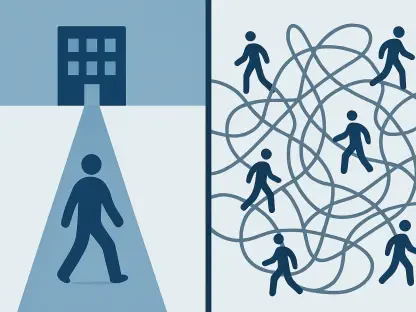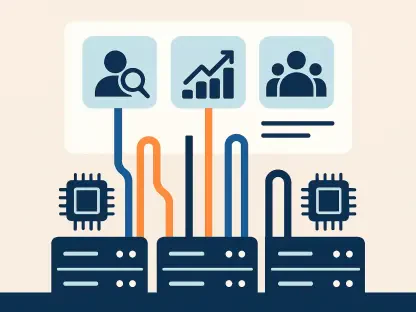In the ever-evolving business landscape, where political and economic challenges increasingly influence workplace dynamics, conflict resolution has become paramount. Marco Gaietti, a distinguished expert in Business Management with decades of experience, delves into the concept of conflict intelligence and how it can transform organizational efficiency and leadership capabilities.
Can you explain what conflict intelligence is and why it’s important in today’s business world?
Conflict intelligence refers to the ability to navigate and manage conflicts effectively within an organization. It’s crucial today because political and economic tensions frequently filter into professional environments, impacting teamwork and productivity. By possessing conflict intelligence, leaders can transform potential disruptions into opportunities for growth and collaboration.
How have political and economic issues increased the need for conflict intelligence in the workplace?
Political and economic issues create an ever-changing environment that can heighten stress and disagreements among employees. These factors often surface in workplace discussions, leading to potential conflicts. Conflict intelligence enables leaders to address these issues constructively, fostering an inclusive environment where diverse opinions are valued and managed.
What are some of the essential ingredients that make up conflict intelligence?
Key components of conflict intelligence include adaptability and creativity. Adaptability allows leaders to modify their approaches in response to varying conflict situations, while creativity helps develop innovative solutions that satisfy all parties involved. These elements ensure conflicts are handled in ways that promote organizational harmony and progress.
Can you provide examples of how adaptability plays a role in handling workplace conflict?
Adaptability in conflict resolution means being flexible with strategies and open to changing tactics as necessary. For instance, a manager might initially attempt a direct conversation to resolve a dispute but pivot to mediation if the conflict escalates. This readiness to change course ensures that resolution methods remain effective and relevant to the situation.
How does creativity contribute to effective conflict resolution in an organization?
Creativity introduces unique perspectives and solutions that might not be immediately apparent in traditional conflict resolution methods. It encourages thinking outside the box, leading to innovative approaches that can turn contentious situations into collaborative opportunities. This fosters a more cooperative workplace atmosphere.
Could you describe strategies leaders can use to strengthen their conflict intelligence “muscles”?
Leaders can enhance their conflict intelligence by engaging in continuous self-assessment and development, participating in conflict resolution workshops, and seeking feedback from peers and mentors. Regularly practicing active listening and empathy also strengthens their ability to understand different viewpoints and mediate effectively.
How can conflict intelligence help improve organizational performance and employee relations?
Conflict intelligence promotes a positive workplace culture by reducing misunderstandings and fostering clear communication. This leads to improved morale, cooperation, and innovation, ultimately enhancing overall organizational performance. When employees feel heard and respected, they are more engaged and productive.
Are there specific skills or training programs you recommend for leaders seeking to build conflict intelligence?
Leaders should consider programs focused on emotional intelligence, negotiation skills, and active listening. These programs provide tools to understand and manage emotions, negotiate win-win outcomes, and communicate effectively. Such training enhances their ability to resolve conflicts constructively and maintains a harmonious work environment.
How can leaders gauge their current level of conflict intelligence and identify areas for improvement?
Leaders can assess their conflict intelligence through self-reflection and feedback from colleagues and subordinates. Regular evaluations of past conflict resolution outcomes can help identify strengths and areas for growth. Engaging with a coach or mentor can also provide valuable insights into their current capabilities and development opportunities.
What challenges might leaders face when trying to implement conflict intelligence strategies within their teams?
Implementing conflict intelligence strategies can be challenging as it may require shifting established norms and behaviors. Resistance from team members comfortable with the status quo and the need to build trust and openness can slow progress. It requires patience, persistence, and effective communication to overcome these hurdles.
Can conflict intelligence help address disagreements that arise from differing political or economic views among employees?
Indeed, conflict intelligence equips leaders with the skills to mediate discussions by focusing on mutual goals rather than differences. By promoting understanding and empathetic dialogues, it turns potentially divisive issues into avenues for learning and growth, thus creating a more united team despite differing views.
How does conflict intelligence relate to other leadership qualities like emotional intelligence or strategic thinking?
Conflict intelligence is closely tied to emotional intelligence, as understanding one’s emotions and those of others is crucial in managing disputes. It also complements strategic thinking by ensuring that conflict resolution aligns with and supports long-term organizational goals, making leaders more effective overall.
Can you share any personal experiences or case studies where conflict intelligence played a critical role in resolving a workplace issue?
In my career, I encountered a situation where two departments were at odds over resource allocation. By employing conflict intelligence, I facilitated workshops that encouraged open communication and brainstorming. This approach led to a collaborative solution, improving inter-departmental relations and optimizing resource use.
What impact do you anticipate increased conflict intelligence could have on the future of workplace culture?
As conflict intelligence becomes more integrated into workplace practices, I foresee a shift towards more resilient and adaptive organizational cultures. Enhanced conflict resolution skills will lead to improved relationships, innovation, and performance, creating environments where diverse ideas thrive and contribute to sustained success.









